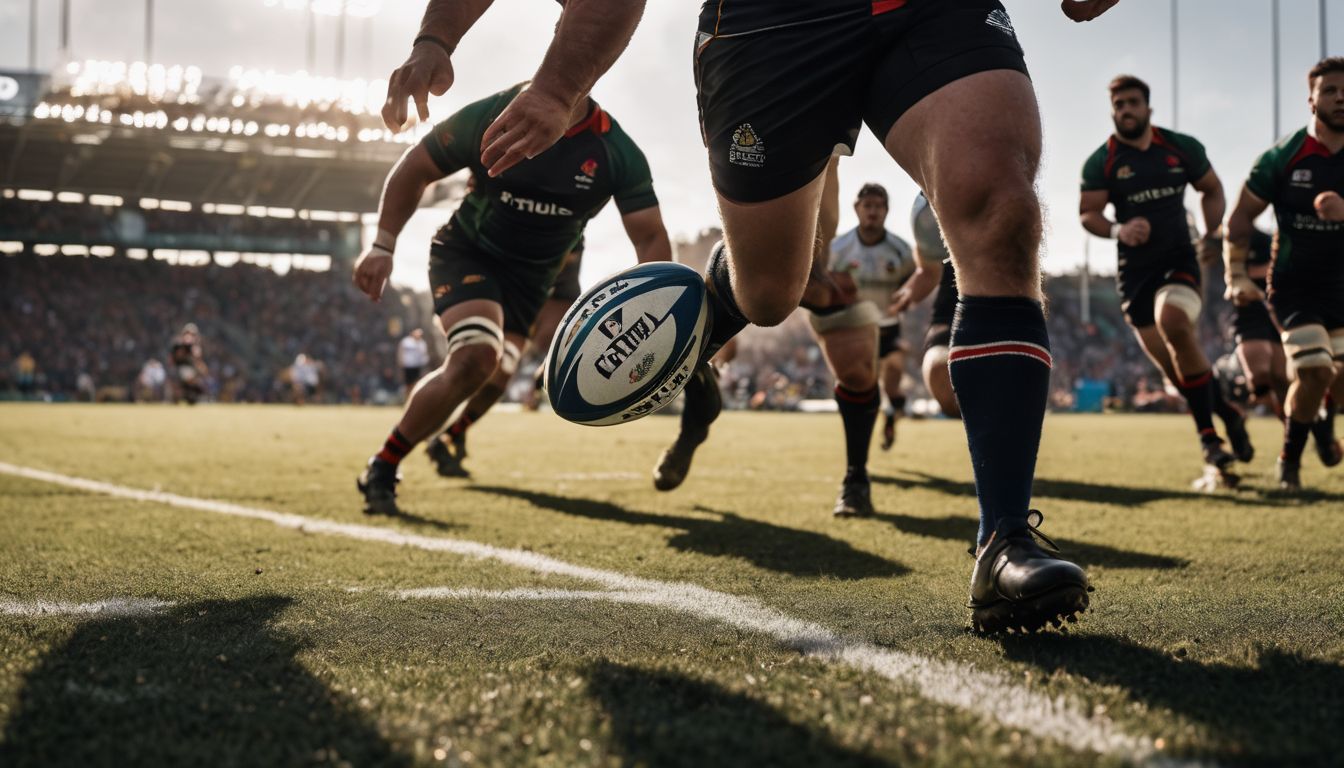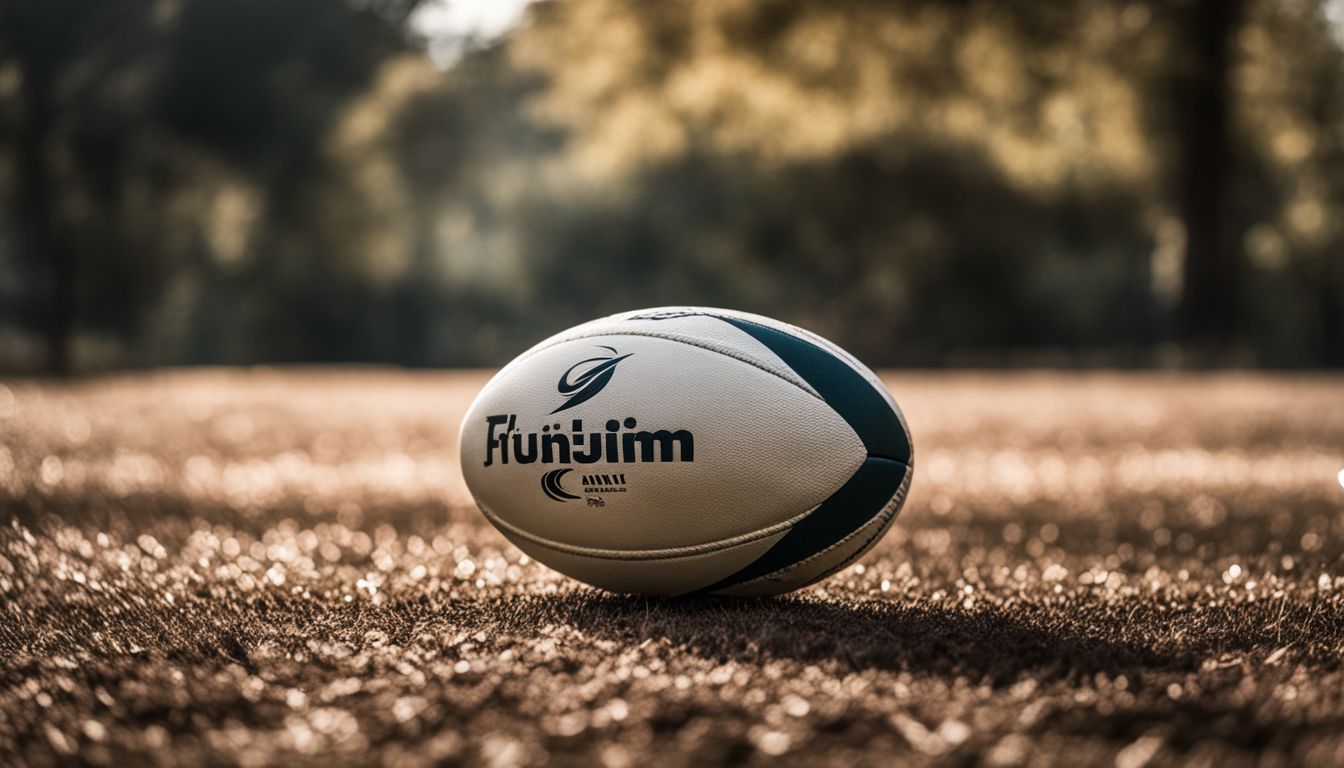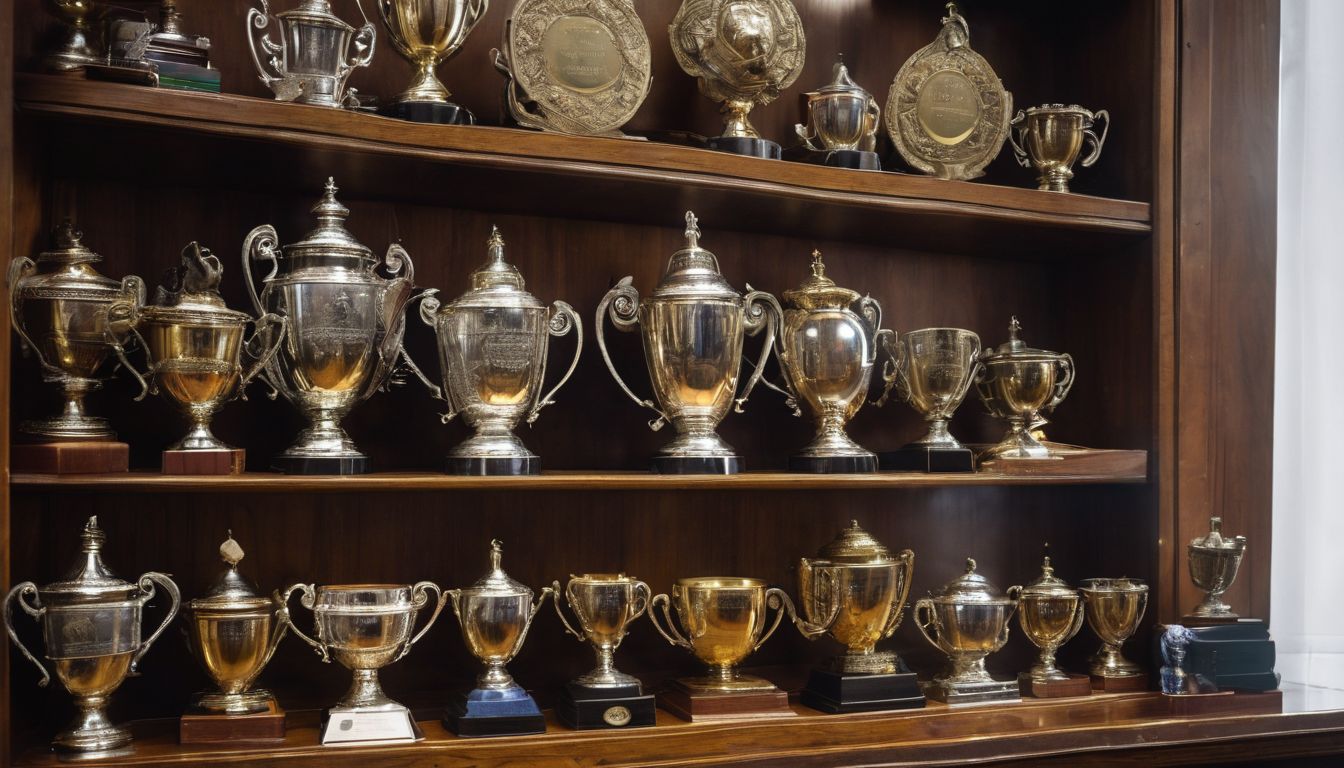Ever scratched your head wondering how a team in rugby suddenly scored points without touching the ball down beyond the try line? That’s likely a ‘penalty try‘, a unique scoring play awarded for specific infringements.
This post will break down what it is, why it happens, and its impact on the game—all in easy-to-understand terms to tackle confusion head-on. Read on to uncover one of rugby’s most dramatic moments!
Key Takeaways
- A penalty try in rugby is a score given by the referee when foul play has illegally prevented what would have been an almost certain try. It’s awarded directly under the goal posts.
- This type of try significantly adds seven points to a team’s total score, highlighting its importance as it does not require any further conversion attempts.
- Referees signal the awarding of a penalty try by running under the posts, with this action making it clear and unmistakable during a match.
- The rules surrounding penalty tries can vary between rugby union and league, with different point values and conversion kick requirements noted for each code.
- Over time, the value of a penalty try has increased from five points to seven, reflecting changes in rugby’s laws that aim to deter foul play and maintain fair competition.
What is a Penalty Try in Rugby?
A penalty try in rugby is awarded when a team would probably have scored a try but for foul play by the opposing team. It is worth 7 points and does not require a conversion kick.
Definition
A penalty try in rugby is a major rule that empowers referees to award a team points directly under the goal posts without the necessity for a conversion kick. This decision comes into play when foul play by an opposing player illegally prevents what would have been a certain try.
Unlike the traditional four-point score that follows with a two-point conversion attempt, World Rugby laws now specify that penalty tries count as seven points automatically credited to the scoring team’s tally.
Awarding this type of try serves as both punishment for infringement and compensation to the attacking side. It ensures teams are not disadvantaged by opponents’ deliberate illegal actions close to their try line.
The referee makes this call by running under the posts and signaling it, thus eliminating any doubt about its occurrence on field.
When is it awarded?
A penalty try is awarded when foul play prevents a probable try from being scored. The referee awards the penalty try by running under the posts and signaling a try. It is worth seven points with no conversion needed. This type of score is typically awarded close to the try line, and it’s a crucial aspect of the scoring system in rugby union. A conversion attempt follows the penalty try, in-line from where the original foul play occurred. Additionally, a penalty kick from in front of the posts is taken after the penalty try to further punish the infringing team.
How many points is it worth?
The penalty try in rugby is worth seven points, making it a significant scoring opportunity. Unlike a regular try, there is no need for a conversion kick after a penalty try. This means that the team who was awarded the penalty try instantly gains seven points on the scoreboard.
The value of a penalty try reflects its importance in acknowledging and compensating for foul play that prevents a probable try from being scored.
Scoring a Penalty Try
A penalty try in rugby is awarded when a player would have scored a try but for foul play by the opposition. It is worth 7 points and does not require a conversion kick.
Fouls that may lead to a penalty try
- Deliberate collapsing of a scrum or maul close to the try line.
- Repeated infringements by the defending team.
- Foul play such as dangerous tackles or high tackles preventing a try from being scored.
- Deliberate knock – on or obstruction near the try line.
- Intentional collapse of a driving maul close to the try line.
Difference between a try and a penalty try
When comparing a try and a penalty try in rugby, the key distinction lies in how they are awarded. A try is scored when a player grounds the ball over the opponents’ goal line, while a penalty try is awarded by the referee if foul play by the defending team prevents what would be a probable try from being scored.
Unlike a regular try, which can be worth 5 or 7 points depending on whether it’s followed by a successful conversion kick, a penalty try automatically awards 7 points with no need for an additional conversion attempt.
Additionally, unlike scoring regular tries where there may be pressure from defensive players, a player who would have otherwise scored being blatantly prevented due to foul play results in the awarding of a penalty try.
Variations of Penalty Try in Rugby Union and League
Penalty tries in rugby union and league have different points values, with a penalty try in rugby union being worth 7 points, while in the league it is worth 8 points. Additionally, in rugby union, there is no conversion attempt after a penalty try is awarded, but in rugby league, a conversion kick can be attempted.
Points value
The penalty try in rugby is now worth seven points, making it a significant scoring opportunity for the team that has been fouled against. This increased value of the penalty try eliminates the need for a conversion kick, streamlining the scoring process and ensuring that teams are fairly compensated for foul play preventing a probable try from being scored.
Awarding seven points for a penalty try emphasises its importance in rugby gameplay, and makes it an essential aspect of securing victory. This shifted value acknowledges the impact of foul play on potential tries and provides teams with a substantial scoring advantage when such infringements occur.
Conversion attempt
After a penalty try is awarded, the team that was fouled against has the chance to score additional points through a conversion attempt. The conversion kick is taken in line from where the penalty try was scored.
It provides an opportunity for two extra points, and it must be taken as a place-kick rather than a drop-kick.
The successful conversion adds two points to the seven already scored for the penalty try, making it worth a total of nine points. To watch this play unfold can be an exciting moment for fans, as it could potentially turn the game around with those additional valuable points.
Evolution of the Penalty Try
The Penalty Try has evolved over time in rugby, with changes to rules and interpretations. From controversial calls to clear-cut decisions, the penalty try has been a key aspect of the game’s development.
From past to present
The penalty try has evolved in rugby over time. In the past, it was only worth five points, and a conversion kick would follow. However, today, a penalty try is worth seven points without the need for a conversion.
The pivotal role of the penalty try in scoring makes it an essential aspect of modern rugby union. Referees have become more vigilant in awarding this type of try to prevent foul play and ensure fair competition on the field.
Controversies surrounding penalty tries have arisen from time to time due to subjective interpretations by referees. Despite this, its significance remains unchanged as it continues to be a powerful scoring method in rugby union matches.
Controversial penalty tries
Throughout the history of rugby, there have been numerous instances where the awarding of a penalty try has sparked controversy. Here are some notable examples:
- In a closely contested match between two rival teams, a penalty try was awarded in the dying moments, leading to heated debates about the referee’s decision.
- During an international tournament, a controversial penalty try was given due to an alleged high tackle, resulting in widespread discussions among fans and analysts.
- In a crucial knockout game, a penalty try was awarded despite conflicting views on whether the foul play actually prevented a probable try from being scored.
- A disputed penalty try decision in a title-deciding match left fans divided and added fuel to the ongoing debate about the consistency of officiating in rugby.
- A contentious penalty try call led to uproar within the rugby community, with many questioning the interpretation of the rules by the match officials.
- The awarding of a penalty try after a contentious incident stirred up controversy and prompted calls for greater clarity on the application of this scoring method.
- A hotly debated penalty try decision cast doubt on the impartiality of referees and raised concerns about their ability to make fair judgments under pressure.
- The controversial nature of certain penalty tries has prompted calls for greater transparency and accountability in how such game-changing decisions are made by officials.
Additional Information
Learn about the comparison between penalty tries and other scoring methods in rugby, as well as how to watch a penalty try being scored.
Comparison to other scoring methods
In rugby, various scoring methods are available to teams, each with its distinct value and significance within the game. Here’s a comparison of the penalty try to other scoring options, illustrating its unique position within rugby’s point system.
| Scoring Method | Points Awarded | Description |
|---|---|---|
| Penalty Try | 7 | Awarded automatically under the posts when a team commits foul play that prevents a probable try. |
| Try | 5 | Scored when a player grounds the ball over the opposition’s try line. |
| Conversion | 2 | Attempted after a try, by kicking the ball over the crossbar and between the uprights from a spot in line with where the ball was grounded. |
| Penalty Kick | 3 | Awarded for various infringements, kicked over the crossbar and between the uprights from the point of infringement or behind it on the same line. |
| Drop Goal | 3 | Scored by dropping the ball on the ground and kicking it as it rises over the crossbar and between the uprights. |
Scoring a penalty try offers a significant advantage due to its higher point value and guaranteed nature. Unlike a conversion, no additional kick is required after awarding a penalty try, which simplifies the scoring process and enhances the game flow. The automatic addition of the extra points reflects the severity of the infringement that led to the penalty try’s awarding.
How to watch a penalty try being scored.
When a penalty try is scored in rugby, keep an eye on the referee. If foul play by the opposition prevents a probable try from being scored, the referee will run under the posts and signal a try, awarding seven points without conversion.
Pay attention to the position where the penalty try is awarded; typically it occurs close to the try line. Afterward, watch for both a conversion attempt and a penalty kick taken from in front of the posts – this is how you can witness a penalty try being scored in rugby.
Conclusion
In conclusion, a penalty try in rugby is awarded when foul play by the opposing team prevents a probable try from being scored. This crucial aspect of scoring is worth seven points with no conversion needed.
The referee awards the penalty try between the goal posts, and it often occurs close to the try line. Rugby fans can witness this exciting event as part of the game’s fast-paced action.
FAQs
1. What exactly is a penalty try in rugby?
A penalty try in rugby is awarded when a player would have scored a try but for foul play by the opposing team.
2. How many points do you get for a penalty try?
For scoring a penalty try, your team earns the same points as a regular try, which is five points.
3. When can an official award a penalty try?
An official can award a penalty try if they believe that scoring was prevented by the other team’s infringements.
4. What happens after a rugby team scores with a penalty try?
After scoring with a penalty try, just like any other tries in rugby, the successful conversion kick that follows adds two more points to their total score.
5. Are there specific rules about how conversions work after getting awarded?
Yes! After being awarded, even without taking any conversion kicks or following typical conversion rules; teams magically receive additional seven full points.












